Help keep your plants healthy and prevent unwanted critters in your garden by avoiding these five mistakes that attract garden pests.
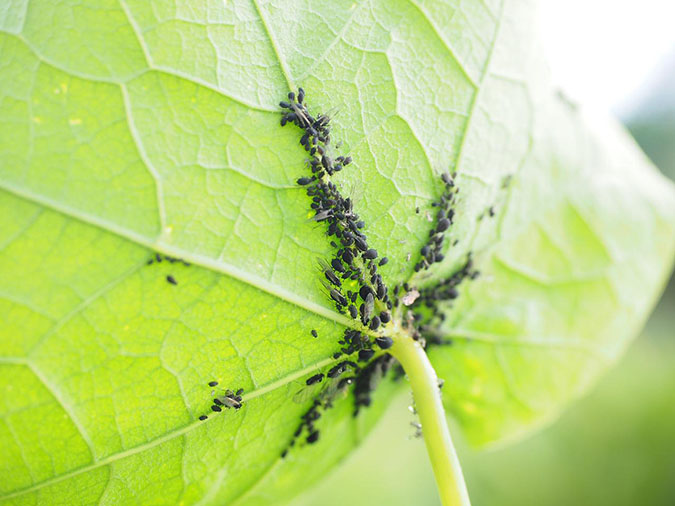
Image by Hans Braxmeier from Pixabay
5 Common Mistakes That Attract Garden Pests
With spring almost over, gardening is starting to pick back up in this new season.
However, as the flowers and vegetables start to get planted and grow, an important question is beginning to form in the minds of plant owners everywhere: how to prevent garden pests from destroying your plants.
Whether it’s insects eating up and infecting crops with diseases or hidden animals potentially posing a threat for gardeners, it’s no wonder why specific insects and animals can be a real pain for gardeners everywhere.
You May Also Enjoy:
“No Bare Soil!—Vegetable Garden Cover Crops”
“How to Avoid Garden Pests & Disease, Organically (VIDEO)”
“Composting the SCARY Stuff—Meat, Dairy, Bones, and Human Waste!”
Unfortunately, however, not everyone knows how to keep unruly pests under control and out of the way, or some of the mistakes that can lead to them becoming a big problem in the first place.
So to help you and your plants to get through the new gardening season, here are 5 of the most common mistakes plant owners make that attract unwanted garden pests—and how to prevent them.
#1. Mismanaging Your Plants in Their Early Stages
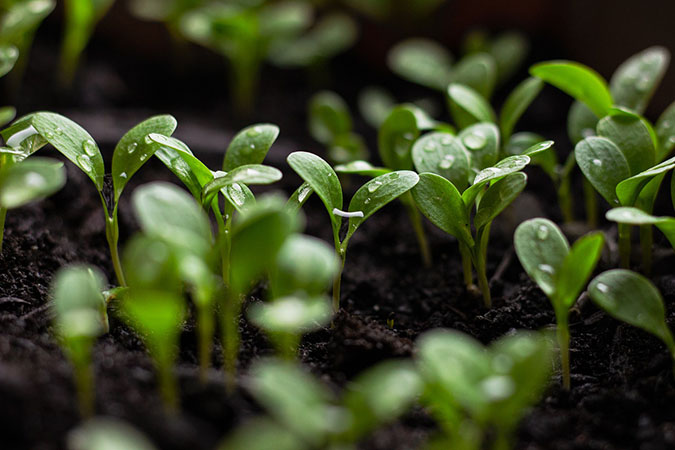
Image by onehundredseventyfive from Pixabay
The early stages of plant life are a very important part of every organism’s life, including plants. It can greatly determine early on whether your plant will successfully flourish or not.
Whether your plant’s journey starts from little seedlings or from starters, every plant needs 4 essential things to survive: sunshine, water, food, and protection. Lack or excess of any of these essentials will lead to your plant becoming more susceptible to pests.
For example, the most common way first-time plant owners “overlove” their plants is by overwatering them.
You May Also Enjoy:
“How to Attract Beneficial Insects and Repel Pests Through Garden Design”
“Small-Space Vermiculture, Step-by-Step”
“Sheet Mulching: Build Soil, Thwart Weeds, and Make Your Garden Fertile”
Overwatering your plants can invite harmful gnats to feed off of your plants’ rootlets, leading to disease and stunted growth. Excess water can also attract shore flies, which are typically the culprits behind damaged plant tissue and the transfer of dangerous pathogens from plant to plant.
Most people also forget that their plant’s new garden and soil environment automatically makes them susceptible to an array of pests that they have to be protected from. Protection can include a cold frame, cloche, or row cover, all of which will prevent garden pests from attacking your plants.
#2. Failure to Remove Items Cluttering up Your Garden
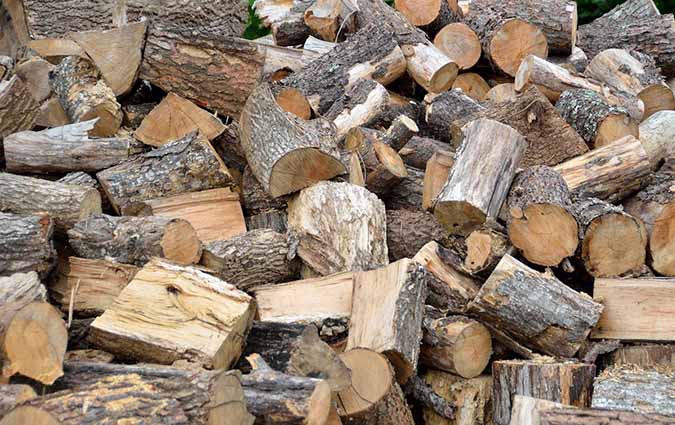
Image by Paul Brennan from Pixabay
Many people tend to keep a lot of things in their gardens, from compost bins to woodpiles and overgrown patches of grass. However, most people forget that isolated and unattended-to areas like this can invite a lot of unwanted guests.
You May Also Enjoy:
“Special Challenges to Managing NPK in the Organic Garden”
Too many unattended-to and cluttered areas typically provide shelter for animals who love to hide. Unfortunately, many of these animals can be potentially detrimental and even dangerous to have lurking around in your garden, especially if you don’t know when they’re there.
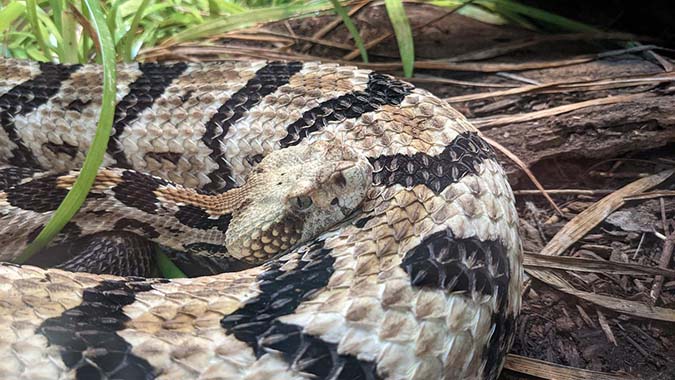
Image by Michael Schneider from Pixabay
One such animal is the Copperhead Snake, who loves making tall grasses and cluttered spaces its home to hide in. While their bites aren’t fatal to humans, they are pretty painful and medical attention is required. So this is definitely something you’re going to want to prevent from happening, and luckily it’s pretty easy to keep unwanted animals out.
You just have to keep your garden clean, tidy, and well-groomed, since most animals find such places less attractive to form homes in.
#3. Cramming Too Many Plants in One Area
Most new plant owners, especially owners of small gardens, are known to unconsciously crowd too many plants into one area to fill up their gardening space with beautiful, interesting flora and fauna. However, most don’t realize that this is doing nothing but creating a beacon for garden pests everywhere to make this place their new home.
Similar to over-cluttering your garden with different items and unattended-to areas, overcrowding with plants gives pests more places to find shelter, more warmth, and more things to snack on, making it the perfect place to call home and reproduce in.
You May Also Enjoy:
“Extreme Composting: Say Goodbye to Landfills and Hello to Soil Fertility”
“Why You Should Add Clay to Your Compost Pile”
“5 Inexpensive, Simple Solutions For Small-Space Composting”
Therefore, instead of cramming your plants together, you should ensure that you have even, adequate spacing between them where air can easily flow through them. This breezy, cool environment is less attractive to pests and makes it less likely for them to want to settle and reproduce in your garden since it will no longer match their ideal environment.
Remember, space and cleanliness will be your best friend when it comes to owning a garden.
#4. Killing Off All The Bugs in Your Garden
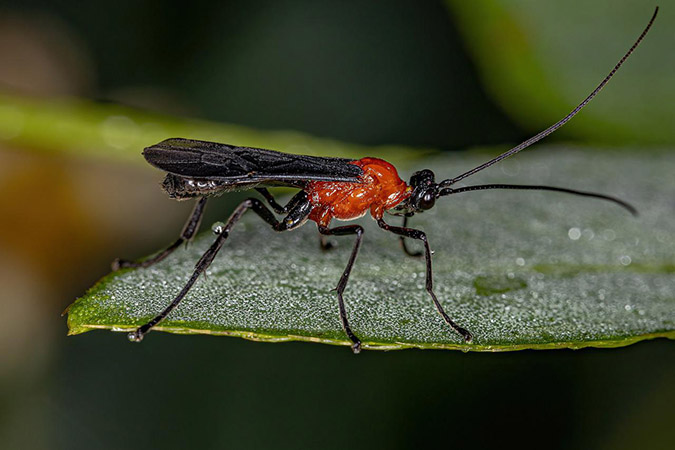
Image by Vinícius Rodrigues de Souza Vinícius Souza from Pixabay
Killing off all the bugs in your garden may not seem like a mistake to most people, since many people consider all bugs pests. However, not all bugs are your enemy when it comes to your garden.
Unbeknownst to most people, there are a lot of species of bugs that actually help protect your garden against unruly, unwanted pests, and it’s going to be important for you to keep them around.
You May Also Enjoy:
“How to Make Fish Emulsion Fertilizer”
“A Simple Fertilizer From the Greek Gods” (Fertilize with Beer and Milk)”
“Jump-Start Your Compost With These 5 Free, DIY Compost Activators”
For instance, specific species of beetles, such as the ground beetle, are phenomenal garden friends that help keep pest numbers under control. In addition, certain wasp species, such as the female Braconid wasp, also keep pest numbers low by birthing their young in them and using them as hosts, a process that results in the death of the pest.
So, before you go around eradicating all of the bugs in your garden, take the time to research which ones are beneficial to keeping your plants alive and safe so they can continue to do so.
#5. Limiting Your Plant Diversity

Image by David Mark from Pixabay
The final mistake people tend to make in their gardens is decreasing the amount of diversity in them.
Most people tend to want to plant the same plants in the same area to make their gardens more aesthetically pleasing to the eye. However, they fail to realize that this just makes their gardens a buffet to potential pests since aesthetics usually doesn’t allow for a diverse ecosystem that is crucial in forming a good, sustainable ecosystem.
You May Also Enjoy:
“How to Sheet Mulch for an Abundant Garden”
A good reference to look at when forming your garden is nature itself. In nature, flora and fauna of the same species aren’t segregated and grouped off from one another to form their own ecosystems. Instead, different species of plants tend to grow together in the same environment to invite different species of insects and animals into their ecosystem to keep everything in check.
You essentially should take up the same idea with your garden.
Plant diversity can allow insects and animals on all sides of the spectrum to call your garden their home, and these different organisms will help to prevent garden pests from ruining your harvest.
Avoiding These Mistakes=Preventing Garden Pests
Gardening can be an amazingly relaxing experience. However, unwanted pests usually spoil that experience by wreaking havoc on gardens and causing problems. Unfortunately, most people don’t realize that simple mistakes on their part actually contribute to these garden pests being a problem.
From neglecting your plants in their early stages of growth to limiting the amount of plant diversity in your garden, there are a lot of mistakes that are made that have to be addressed in order to ensure that your plants can live in as safe of an environment as they possibly can and can flourish to their full potential.
You May Also Enjoy:
“35+ Powerful, Inexpensive Organic Fertilizers You Can DIY”
“Homemade Fertilizers—15 Simple and Inexpensive Options”
“Aerobic Compost Tea, Worm Tea, and Leachate—A Clarification”
The 5 mistakes listed in this article will be some of the most common ones to avoid to start your journey to having a healthy, pest-free garden.
So, armed with this new information, the only thing left to do now is to go out into your garden and protect your leafy friends this season from whatever unruly garden pests present!
What Do You Think?
How do you prevent garden pests from overwhelming your garden and ruining your harvests? Share your best tips in the comments below!

Nigel Robert is a zoologist with more than 10 years of experience in keeping and writing about pet reptiles. The founder of MoreReptiles.com, he writes for various veterinary and reptile care websites and has written extensively about pet reptile husbandry and care.
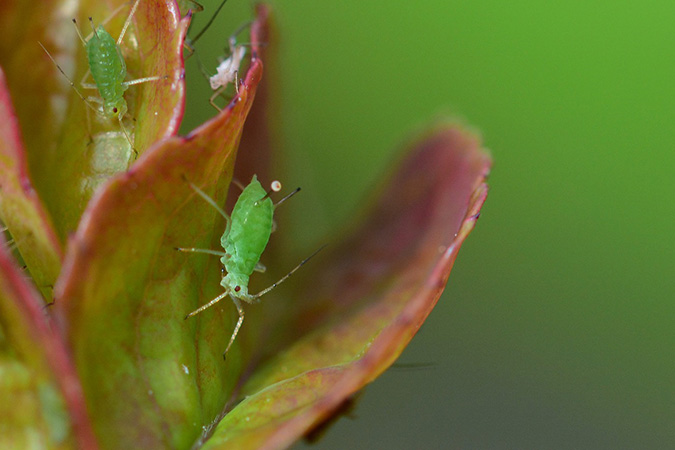
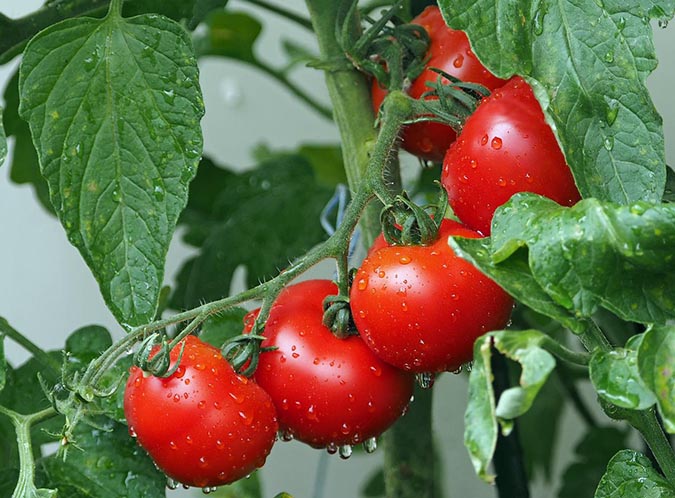







COMMENTS(1)
White flies are my worst pest. any tips?